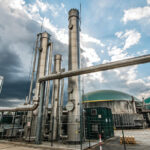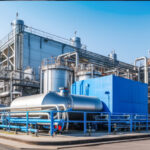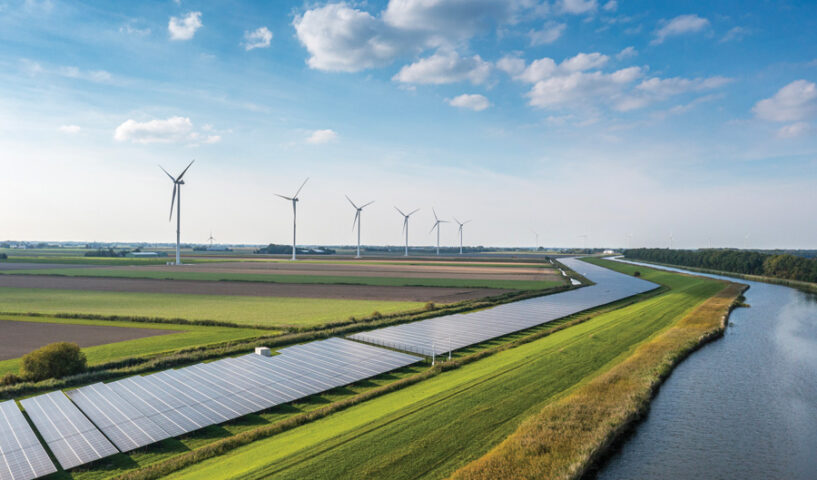
Renewable gas: Ireland’s energy future
9th October 2023
Scaling up the green hydrogen sector
9th October 2023The economic impact of climate change

Climate change is no longer just an environmental issue, it has profound economic implications, writes Colm McGrath, Managing Director of Surety Bonds.
The Earth’s climate is changing at an unprecedented rate due to human activities, primarily emissions of greenhouse gases like carbon dioxide and methane. This ongoing transformation in our climate is causing a wide range of economic impacts across the globe, from extreme weather events, to shifting agricultural patterns, and rising sea levels. The consequences of climate change are far-reaching and increasingly costly.
One of the most visible economic consequences of climate change is the increasing frequency and severity of natural disasters, hurricanes, wildfires, floods, and droughts are becoming commonplace and more destructive. These events result in substantial economic costs, from property, infrastructural repair, healthcare expenses, and to worst of all the loss of life.
The insurance industry is particularly vulnerable to these escalating costs. As the number of climate-related disasters rises, so do insurance claims, which can lead to higher premiums for individuals and businesses. This, in turn, affects the cost of doing business and the affordability of insurance coverage.
Climate change can disrupt supply chains, causing interruptions in production and distribution. A very real example of this was during the protracted heatwave and drought in Europe during the summer of 2022. The Rhine, a major trade artery for German, Dutch, and Swiss economies had become virtually impassable. This had a huge impact as vessels carrying diesel and coal could not move up river (or to reduce their loads), and in most instances were unable to deliver to ports most in need.
This also hampered the preparation for winter, as the summer months are usually used to build reserves. Half of Europe’s territory was suffering from droughts. The Danube, which flows through much of central and southeastern Europe to the Black Sea, was like the Rhine – only flowing at a trickle. Italy’s rice fields were nearly dry as the PO was too low to provide the quantity of water needed, so much so, they started taking water from Lake Garda until that started running low. France found it difficult to cool its nuclear power stations as the Rhône and Garonne were too warm.
Very frightening situations that will be repeated year on year across the globe.
But you know this already. I am communicating with the converted. There is light at the end of the tunnel, transitioning to a low-carbon economy has emerged as a pivotal driver of economic growth and sustainability in the 21st century. The growth of the renewable energy sector including solar, wind, geothermal, and hydroelectric power offers not only environmental benefits but also a plethora of economic opportunities.
As the world grapples with the challenges of climate change and the imperative to reduce greenhouse gas emissions, the transition to renewable energy sources has become a global priority. In Ireland, we are only beginning to see the benefits of investments both from government and the private sector, as projects slowly but surely start to take off. It is essential that we do not waste any more time or hamper the growing momentum of this sector. Ireland is in a key position to become a net exporter if we can tap into lucrative export markets.
The renewable sector attracts substantial capital investment, both from public and private sources. Governments around the world offer incentives, grants, and subsidies to promote renewable energy development. Private investors, including venture capitalists and institutional funds recognise the long-term economic potential of renewable energy and are willing to allocate significant resources to it.
Building the infrastructure required for renewable projects means substantial investment which in turn stimulates economic growth. They create a demand for ancillary services such as transportation, logistics, maintenance, and the ever-growing need for additional grid infrastructure. Once in place, these forms of energy contribute to energy independence and security. By diversifying the energy mix away from fossil fuels, countries, and in particular island nations such as ourselves, reduce reliance on imported oil and gas. This has the benefit of reducing vulnerability to fluctuations in global energy markets helping to stabilise pricing, providing cost certainty.
There is a massive incentive right now to cut our ties with fossil fuels, 20, yes just 20, fossil fuel companies contribute to 35 per cent of all energy-related carbon dioxide and methane pollution worldwide*. The power lies with governments to change the status quo by investing in renewables, of which Ireland should even be a net exporter. The delay by successive governments in embracing renewables is just hard to fathom.
The renewable energy sector offers a wealth of economic opportunities that extend well beyond environmental benefits. From job creation and attracting investments to fostering technological innovation and enhancing export potential. Renewable energy is a driver of sustainable economic growth.
As the world seeks to address the challenges of climate change and reduce greenhouse gas emissions, embracing these economic opportunities becomes not only a responsible choice but a strategic one. Nations and businesses that invest in renewable energy today are positioning themselves for a more prosperous and sustainable future.
*The Guardian, 9 October 2019
Surety Bonds
Colm McGrath, Managing Director
W: www.suretybonds.ie


